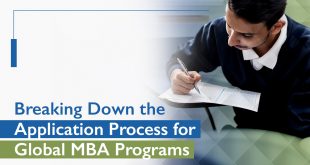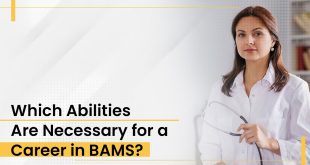The cognitive engagement has long been seen as an essential component of the educational process. educational process
According to studies, students who actively engage in their education get more information than those who passively absorb it.
Engineer educators are still wrestling with the subject of how and why pupils become intellectually engage.
Instructors Engagement
As a result, instructors must be able to utilize data from engagement evaluations to develop precise and relevant tactics for increasing their students’ cognitive engagement.
The purpose of this study is to explain the development and validation of a quantitative measure for measuring students’ cognitive participation in the classroom.
The concept of active learning, as well as engineering course settings, shape the tool.
Regular Jobs
Many of our regular jobs need us to solve difficulties. Stress-relate tiredness might be cause by emotional or personal concerns, work-relate issues, or academic challenges.
They vary from highly abstract to pretty plain. The process of brain development takes place in stages.
Mental Process
Adolescence is a period in which adolescent brains break free from the confines of concrete mental processes and begin to think in a more abstract manner.
Piaget used the term “formal operations” to describe this new talent. The formal operational stage of a person lasts from approximately the age of 12 to around the age of 30.
This is a stage when children can solve problems in abstract ways and conceive things that do not exist in the real world.
Maturity Begins
This stage lasts till maturity and begins around the age of twelve. People’s ability to think rationally and abstractly is growing during this period.
Thinking rationally, deductively, and strategically is now a reality. It’s crucial all this time in a child’s life. To reach a conclusion, you must be able to apply what you’ve learn to use your skills and knowledge.
Operational Stage
There is a lot of contemplation going on here. The formal operational stage provides the ability to think abstractly, which was previously lacking.
Instead of depending just on your prior experiences, you begin to consider the likely outcomes and consequences of your actions.
This kind of thinking is essential for personal and professional development.
Systematic Approach
It’s time to abandon trial and error in favor of a systematic approach to issue solving. This stage enables you to quickly design a solution to a problem.
Inquire with your students about the specifics. When teachers ask their students to explain their own or another’s thinking, they are promoting cognitive progress.
To assist them in better resolving a problem, ask questions that concentrate on a particular component of it.
Improve Skill
Improving your cognitive abilities may allow you to perform better in almost every facet of your profession.
Your attention skills may assist you not just in staying on track, but also in being a more engage listener, which may assist you in improving your relationships.
Modalert and Modvigil are cognitive enhancers design to help pupils over the age of 18 improve their attention, concentration, and information processing.
Improving your logic and reasoning abilities may also assist you in coming up with inventive solutions to difficult problems. Stress reduction may help you focus and pay attention better.
Stressful Circumstance
If at all possible, avoid stressful circumstances. This helps students grasp both abstract and procedural concepts.
Students should not only be able to utilize evidence to support their own points of view, but they should also be able to notice and fix flaws in the arguments of others.
Students may stimulate class arguments by selecting a topic that interests them and then researching and accumulating evidence to back up their claims.
Experiment Elements
This assists kids in developing critical thinking and problem-solving skills. Experiment with real-world elements and data to help students develop their reasoning skills.
Health Performance
Aging, sickness, and poor habits may all decrease cognitive performance and brain health. Engaging in cognitive stimulation activities may help you delay the loss of your mental health.
Take a short look at your brain’s cognitive functions. It also teaches you how to keep your brain active as you age by presenting you with a range of engaging cognitive exercises.
Daily Tasks
Various cognitive abilities that you employ in your daily tasks are investigating in more depth here.
Among these are the abilities to concentrate, recall, think rationally, and understand visual and auditory information.
As a result, you will have a greater understanding of what is going on in the world. You may concentrate your attention on a certain activity or stimulus rather than absorbing all of the information in your surroundings.
Routine Acts
Walking, dressing and driving are all routine acts that don’t require much effort since they’ve been done several times before. Tasks such as responding to a friend in danger, on the other hand, would need more time and attention.
You could also be able to focus your attention just on a single, powerful stimulus. This demonstrates that students who actively interact with learning materials learn more than those who are passively engaging with the knowledge.
Traditional Measurement
The scale was develop in line with the traditional measurement paradigm. We offer a detail account of how subscales were generating for each learning scenario.
To assess diverse cognitive modes in order to better understand the item generation and scale validation methods.
Testing Session
Throughout multiple testing sessions in engineering college courses, the validity of the student course cognitive engagement measure was shown.
Student cognitive engagement was consistently evaluate in the classroom by monitoring students’ taking notes, reading, and interacting with others.
Level of Cognitive Engagement
Different levels of cognitive engagement can affect students’ classroom note-taking and content processing.
The results suggest that there is a definite demand for the instrument to be able to distinguish between various forms of engagement activities.
Engineering Students
The cognitive participation of engineering students is the topic of this study, which adds to the growing body of literature on the issue.
To address the development of educational measurement systems that have been shown to be trustworthy.
Various techniques for conceptualizing participation have proven effective in various contexts.
Classroom Teaching
Determining which metrics of engagement have the most immediate and obvious effects on classroom teaching remains an unresolve subject.
Despite the fact that research has continuously reveal a significant positive correlation between student learning and cognitive engagement, quantifying cognitive engagement in the classroom has proven difficult.
Framework Notion
This might be because the word “cognitive participation” is difficult to define. As part of the framework’s notion of cognitive involvement, students’ overt activities maybe observe.
We intend to create a tool that would help us better understand how students interact in classroom learning situations, such as taking notes, processing knowledge, and interacting with other students.
Instructional Innovation
This is intend to be beneficial for instructors who want to better evaluate their students’ cognitive engagement in the classroom. When considering the impact of instructional innovations gear to promote student engagement.
As a result, we anticipate that educational researchers will find this instrument valuable for evaluating cognitive engagement in a variety of classroom situations.
This study goes into great detail about the technique for evaluating student cognitive participation.
Students Tenacity
A broad concept of student engagement has been found to significantly affect students’ tenacity, migration, self-efficacy, and performance.
Their study discovere a link between students’ self-perceive abilities and the educational goals they set for themselves.
Flexibility Classroom
When you first bring cognitive flexibility into the classroom, students and their parents may find it difficult to discuss.
Cognitive flexibility may be taught and encourage both at home and at school. Teachers may encourage students to create board games and then share them with their peers in order for them to play the games in novel ways.
This exercise has fun and unique methods to measure cognitive flexibility. There is a psychological approach behind fun games and funny instances of cognitive flexibility as an enticing way to handle a difficult issue.
Educate Pupils
This is a fantastic chance to educate pupils about wordplay and word ambiguity. As a consequence, people may be conditions to see occurrences, such as wrongly using a term, as more than a mistake.
The synthesis of serotonin, dopamine, and endorphins as a consequence of participation in these activities would improve students’ emotions and relieve their anxiety about change.
 BESTCITYTRIPS
BESTCITYTRIPS




